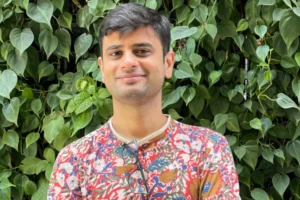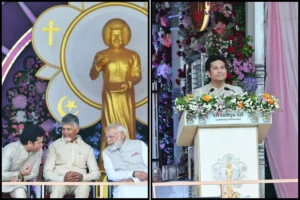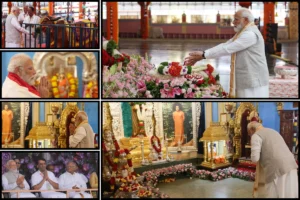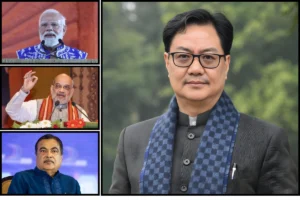
Prime Minister Narendra Modi sounded the bugle for the general elections due next year with his strong pitch for the Uniform Civil Code (UCC). Addressing BJP workers in Bhopal earlier this week, Modi asked how the country can run on a dual law system. Accusing “certain sections” of instigating Muslims against the UCC, Modi quipped, “If there is one law for one member of the house and another for the other, will the house be able to run?”
The BJP’s commitment to the implementation of the Uniform Civil Code is not new. However, such a clear statement on the issue from the top is unprecedented. Political pundits are bound to link his assertion to the saffron party’s strategy in the big battle next year. The statement is also being seen as the BJP’s answer to the renewed efforts of forging unity in the opposition camp.
It is still unclear whether PM Modi’s words will be followed by the introduction of a related bill in the upcoming session of the Parliament. The government would want to steer clear of any controversy on this matter in the run-up to the G20 Annual Summit in September, which will be held in India. It may find the end of the year as the most ideal moment to move forward on this issue, as several states will go to polls during that time and the Parliament will also be convened for the winter session. In fact, the assembly polls will be an ideal opportunity for the BJP to gauge the public mood on what has always been among its core political planks.
Meanwhile, PM Modi seems to have hit two birds with one stone. His open endorsement of the UCC has jolted the hopes of a unified opposition taking on the BJP in the next Lok Sabha polls. The Aam Aadmi Party (AAP) and the Biju Janata Dal (BJD) have no objection in principle to the proposal, and the Shiv Sena’s Uddhav Thackeray faction is also on board, albeit with some conditions.
Additionally, PM Modi has also sought to draw a clear distinction between forward and backward sections of Muslims by accusing the opposition camp of using the community as a vote bank. The BJP would be hoping to sway at least a section of backward Muslims through the Prime Minister’s strong espousal of their rights. Notably, backward Muslims constitute about 85% of the total Muslim population in India. They have a sizable population in Bihar, Jharkhand, West Bengal, and Assam—states that account for 190 out of the total 543 Lok Sabha seats.
Furthermore, at least 65 out of 80 Lok Sabha seats in Uttar Pradesh have at least 30% Muslim voters. Likewise, Muslims hold the key to victory in 15 out of 40 Parliamentary seats in Bihar. They are a deciding factor in at least 42 Lok Sabha seats in West Bengal and in 14 seats each in Jharkhand and Assam.
Narendra Modi has preferred attack as the best defense against the prospects of a united opposition. Readers may recall that he had termed a similar meeting of prominent opposition leaders in Kolkata in 2019 as an unstable conglomeration of corrupt and cynical dynasts. He had similarly ridiculed the coming together of opposition leaders on one stage in April of this year.
However, the notion of a united opposition faces challenges from within. Many leaders in the anti-BJP camp believe that the 15 parties that came together in Patna could pose a formidable challenge in 2024 if they are able to fight elections together. Their collective vote share in 2019, at 37.3%, was almost the same as that of the BJP, which polled 37.6% of the total votes cast. However, Indian elections can often defy arithmetic, especially in the face of emotive issues.
The Patna meeting was a good beginning for the opposition, although several unresolved differences continue to overshadow the possibility of a united front. Even if we were to set aside the central issue of a consensus PM candidate to take on Modi, making all parties agree to a common seat-sharing formula is going to be a daunting task.
We all know that the Congress, Left Front, and Trinamool Congress cannot see eye to eye in West Bengal. Relations between the Congress and Mamata Banerjee’s party have further deteriorated after the former joined hands with communist parties. It remains unlikely that they can work coherently in a national-level alliance. Similar fault lines exist in Punjab and Telangana, where the Congress is the principal challenger to the ruling parties.
The situation is even more complicated in Uttar Pradesh, where the Samajwadi Party and Bahujan Samaj Party would not cede any political ground to the grand old party. Nevertheless, the JDU claims that the opposition camp is ready to field joint candidates against the BJP in at least 450 constituencies. TMC and the Samajwadi Party are willing to ally with the Congress in their respective states if party leader KC Tyagi is to be believed. This would be nothing short of a political coup if it actually happens.
The Congress is on the upswing after recent victories in Himachal Pradesh and Karnataka and now hopes for a better deal from the same prospective allies in the upcoming polls who were thriving in their respective regions at the cost of the eroding Congress. A solid performance in Madhya Pradesh, Chhattisgarh, Telangana, and Rajasthan will further bolster the party’s morale. The outcome in Telangana will also decide Chief Minister KCR’s standing in the opposition camp.
The deadline of 14 July set by the Law Commission for citizens to submit suggestions regarding the UCC has become politically significant in this context. Is it a mere coincidence that the opposition parties will also be meeting again around the same time in Bengaluru, or is there more to it than meets the eye?






















